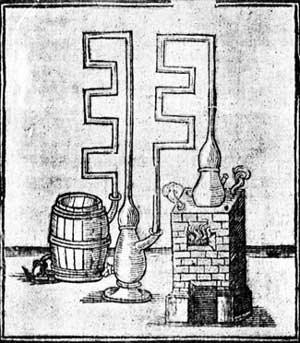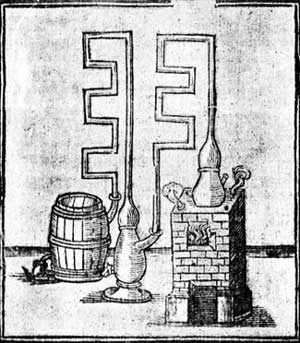
I'd like to share an amazing article by an amazing professor. Here is a small piece of the article. Be sure to click on the link for the full article.

A hundred years later the European alchemists of the 15th century, including Paracelsus, continued to perfect the process of distillation and added many new essential oils, which began to be more widely used as perfumes. By the 16th century, the perfume industry was one of the most important industries in Europe.
By the 16th Century, production of essential oils was widespread and many manor houses in England and Europe had still rooms devoted to the production of flower waters and essential oils for both household and medicinal uses.
From the 16th to the early 19th centuries herbal medicine in general, and aromatic medicine specifically, continued to expand and, of course herbal medicines, including essential oils, were the only medicines we had until the 19th century. As synthetic drugs became the gold standard for western medicine's treatment of illness and the pharmaceutical industry became the powerful force that it is today, herbal medicines of all types fell by the wayside in most developed countries (China is a notable exception). However, according to the World Health Organization, the majority of the world's population still largely depends on traditional medicines based on medicinal and aromatic plants and for many people in developing countries herbal medicines are still the only medicines that are available. In many cases, herbs are used today in the same ways that they were hundreds and even thousands of years ago and in some instances these ancient medicines have applications in the treatment of a diverse range of illnesses such as cancer, infections, kidney stones and many others that are unmatched by pharmaceutical drugs.
http://www.aromatherapy-school.com/aromatherapy-schools/aromatherapy-articles/history-of-aromatherapy.html